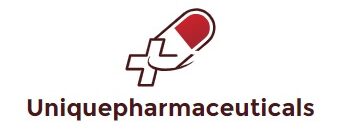People with Tourette’s syndrome might likewise have obsessive compulsive condition (OCD), attention deficit disorder (ADHD) or discovering troubles.
Table of Contents
What is Tourette’s Syndrome
Tourette’s syndrome is a condition that triggers an individual to make uncontrolled noises and motions called tics. It typically begins throughout youth, however the tics and other signs typically enhance after numerous years and in some cases disappear entirely. There’s no treatment for Tourette’s syndrome, however treatment can assist handle signs.
Symptoms of Tourette’s syndrome
Tics are the primary sign of Tourette’s syndrome. They typically appear in youth in between the ages of 2 and 14 (around 6 years is the average).
People with Tourette’s syndrome have a mix of physical and singing tics.
Examples of physical tics consist of:
- blinking
- eye rolling
- grimacing
- shoulder shrugging
- jerking of the head or limbs
- leaping
- twirling
- touching things and other individuals
Examples of singing tics consist of:
- groaning
- throat cleaning
- whistling
- coughing
- tongue clicking
- animal sounds
- stating random words and expressions
- duplicating a noise, word or expression
- swearing
Swearing is uncommon and just impacts about 1 in 10 individuals with Tourette’s syndrome. Tics are not typically hazardous to an individual’s general health, however physical tics, such as jerking of the head, can be unpleasant. Tics can be even worse on some days than others.
They might be even worse throughout durations of:
- tension
- stress and anxiety
- fatigue
People with Tourette’s syndrome can have state of mind and behavioural issues, such as:
- attention deficit disorder (ADHD)
- obsessive compulsive condition (OCD)
- anxiety or stress and anxiety
Children with Tourette’s syndrome might likewise be at threat of bullying due to the fact that their tics may single them out.
Premonitory feelings
Most individuals with Tourette’s syndrome experience a strong desire prior to a tic, which has actually been compared to the sensation you get prior to requiring to itch or sneeze.
These sensations are called premonitory feelings. Premonitory feelings are just relieved after the tic has actually been performed.
Examples of premonitory feelings consist of:
- a burning sensation in the eyes prior to blinking
- a dry or aching throat prior to groaning
- a scratchy joint or muscle prior to jerking
Controlling tics
Some individuals can manage their tics for a brief while in specific social scenarios, like in a class. It needs concentration, however gets simpler with practice.
Controlling tics can be tiring. An individual might have an abrupt release of tics after a day attempting to manage them, like after returning house from school.
Tics might be less obvious throughout activities including a high level of concentration, such as checking out an intriguing book or playing sports.
When to get medical recommendations
You must call a GP if you or your kid start having tics. Many kids have tics for numerous months prior to outgrowing them, so a tic does not always imply your kid has Tourette’s syndrome.
Diagnosing Tourette’s syndrome
There’s no single test for Tourette’s syndrome. Tests and scans, such as an MRI scan, might be utilized to eliminate other conditions.
You can be identified with Tourette’s syndrome if you have actually had numerous tics for a minimum of a year.
Getting a company medical diagnosis can assist you and others comprehend your condition much better, and offer you access to the best sort of treatment and assistance.
To get a medical diagnosis, a GP might refer you to various professionals, such as a neurologist (a brain and nerve system professional).
Treating Tourette’s syndrome
- There’s no treatment for Tourette’s syndrome and most kids with tics do not require treatment for them.
- Treatment might in some cases be suggested to assist you manage your tics.
- Treatment is typically offered on the your local doctor and can include:
- behavioural treatment
- medication
Behavioural treatment
Behavioural treatment is typically offered by a psychologist or a specifically skilled therapist.
2 kinds of behavioural treatment have actually been revealed to decrease tics:
- practice turnaround training — this method includes exercising the sensations that activate tics; the next phase is to discover an option, less obvious method of easing the desire to tic
- direct exposure with reaction avoidance (ERP) — this approach trains you to much better control your desire to tic; methods are utilized to recreate the desire to tic to train you to endure the sensation, without doing the tic, till the desire passes
Medicine
Some individuals’s tics are assisted with medications, however this is typically just suggested if the tics are more extreme or impacting everyday activities. Medicines for Tourette’s syndrome can have negative effects and they will not work for everybody.
Causes of Tourette’s syndrome
The reason for Tourette’s syndrome is unidentified. It’s believed to be connected to a part of the brain that assists control body language. For unidentified factors, kids are most likely to be impacted by Tourette’s syndrome than women.

